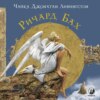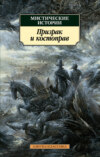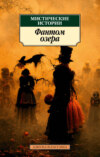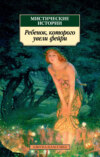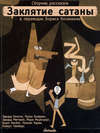Читать книгу: «The Capsina. An Historical Novel», страница 2
Her foreman had been waiting for orders as to the unloading of the brig, and when the tales were over, she sent for him.
"Begin the unloading now, at once," she said, "and let the work go on all night. Oh, man, are you a stuffed bird, that you stare so at me? Do you not understand the tongue of your fathers, or shall I speak Turkish? I will be down there in an hour. Unload at once." Then turning to the captain of the caique, "You will sup with me," she said, "and you too, Christos. By-the-way, what is your name?"
"Constantine Kanaris."
"That is a good sea-name. Do you hate the Turk, and can you handle a boat?"
"The one as thoroughly as the other."
"I offer you a birth in the Sophia, directly under me. I command my own ship."
"And I, too," said Kanaris, "as my father and grandfather have done before me."
"You accept the post?"
Kanaris looked rather bewildered.
"Capsina," he said, "you are one of few words, and so am I when work is to be done. I have told you of Nicholas Vidalis, who is among the first movers of this revolution. Him I have promised to serve, in the cause of the war. I cannot go back from that."
The Capsina frowned, and struck the table impatiently.
"Do you not understand?" she said – "that his work is my work? Oh, Uncle Christos! what is the matter with you? Has the sky fallen, or do you hear the trumpet of the archangel? God in heaven! for the present there is no more trading for me. Do you not see that there must be a fleet, or these devils will keep on sending more arms and armies into the country? Are you a Greek, man – are you anything but a fiend from the pit, that you can wonder at me, when you hear how they treat other clans, free-born and scornful as ourselves, like slaves and beasts? That I should be busy like a mule carrying silk stuff, when such things are going on! There must be a fleet, I tell you, and the Sophia is the first ship of that fleet. By God! but I have found my work at last! It was not for nothing that I have built ships, and learned how to sail them, and take them where the devil himself would be afraid to trust to his luck. Now quick," she said to Kanaris – "do you take this berth or not? I want a man something like you, who hates and works and is silent. You will suit me, I think."
"Our purpose is war on the Turk and no other purpose?" asked Kanaris.
"That is better," said the Capsina – "we are getting to business. Yes, only war on the Turk. War? Extermination, rather, for that is the only business of Christians with regard to them. And you shall be no loser, if we prosper; and if we do not prosper, I pay you still the wage of the captain of a brig."
Kanaris flushed.
"Why do you say that?" he asked. "Is it for that that Nicholas – God be thanked for him! – and those like him serve?"
"I was wrong," said Sophia, "but you were a stranger to me till this moment, but you are no stranger now. You will come?"
"I will come," he said.
With that they fell to supper, and when supper was over Sophia and Kanaris went down to the harbor. The brig was lying close in unlading, and returning boats were passing to and fro from it to the shore. Two great resin flares on the deck showed them a crowd of men working at the crane by which the freight was conveyed from the hold and swung over the side to the barges that received it. The cargo was of silk from the Syrian coast and was for Athens and Salonica; but the foreman, in blind obedience to Sophia's instructions, was unloading it and storing it in her shed on the quay. They found him there when they got down, and she nodded approvingly when she saw what progress the work had made.
"Have we another ship in?" she asked.
"Yes, the Hydra, but she is due to sail to-morrow to Syria," said he.
The Capsina stood for a moment thinking.
"May the Virgin look to Syria!" she said. Then, "What is your caique doing?" she asked Kanaris.
"Picking up chance jobs."
"Here is one then, and Syria is all right. Will you undertake to deliver the silk to Athens and Salonica?"
"Before what date?"
"This day three weeks. My men shall do the freighting for you, and you can sail to-morrow night. You will carry it easily; it is only a quarter of the Sophia's cargo, for we have discharged at Crete and Melos. Also it is the season of south winds."
The matter was soon arranged, and the two went on board the Sophia, that Kanaris might see the ship. To him, as to the Hydriots, the build of the vessel was new, but she had acquitted herself too well on her previous cruises to allow of any doubt as to the success of what had been an experiment, and Kanaris, who had more than once been on board English and French cruisers and men-of-war, talked with Sophia as to the guns she should carry. They could obtain these, he told her, at Spetzas, where the revolutionists had formed a secret arsenal. It would be better, he suggested, to delay any alteration in the bulwarks and disposition of the ship till they saw what guns were to be got.
At the end of an hour or so they went on shore again, Kanaris to his caique, Sophia back to her house. The night was still and windless, and from her room she could see the flares on the Sophia burning upright and steady in the calm air, and the rattle of the gear of the crane was audible. She felt as if her life had suddenly burst into blossom, and the blossom thereof was red.
CHAPTER II
Next day came news that Spetzas had openly joined the insurrection, and two proselytizing brigs put into Hydra, to try to raise, if not more ships, at any rate recruits. They both carried the new Greek ensign, white and blue, and bearing the cross of Greece risen above the crescent of Turkey. The tidings that the Capsina was going to join the revolutionists with her ship had already spread through the town, and when next morning she went down to the quay to speak with the captains of the Spetziot vessels, she was like the queen bee to the swarm, and the people followed her, cheering wildly. Their voices were music and wine to her, and the thrill of exultation which belongs to acts of leadership was hers.
Fierce and fine too was the news from Spetzas: the people had risen, and after an immense meeting held on the quay had chosen a commander, and broken open the treasury in which was kept the annual tribute to the Ottoman government. The taxes had just been got in, and the treasury was full. With this money eight brigs were being armed and manned, and would set sail to Melos, at which island, as they knew, were several Ottoman vessels making their annual cruise of conscription for raising sailors. In such manner was the vintage of the sea to begin.
Round the Capsina and the Spetziot captains the crowd surged thickest. One of these, Kostas Myrrides, had a certain loud and straight-hitting gift of oratory, and the crowd gathered and swayed, and hung on his words. There had been erected for him a sort of rude dais made of a board placed upon two barrels, and from there he spoke to the people.
"The wine is drawn!" he cried; "to the feast then! Yet indeed there is no choice. Greece is up in arms, and before long the armies and fleets of the infidels will be on us. What will it profit you to stay still and watch? Do you think that the Turks will sit in justice and examine whether this man is an insurgent and the other is not? Is that their way of dealing? The justice of the Turk! You have heard the proverb and know what that means. The fire of war leaps from cape to cape and mountain to mountain. Kindle it here. Already has one of you, and that a woman whose name will not be forgotten, thrown in her lot with a glorious cause – Greece, the freedom of Greece!"
The shout rose and broke in waves of sound, only to swell and tower afresh when the speaker unfurled the new-blazoned flag, and waved it above them. Truly, if the Turkish ship of conscription had come in sight, there would have been short shrift for those on board.
The government of Hydra was in the hands of twelve primates, who were responsible to the Ottoman government for the annual tribute in specie (in itself but small), and also for the equipment and wages of two hundred and fifty able-bodied seamen yearly to the Ottoman fleet. To raise this more considerable sum a tax of five per cent. was levied on the income of every man in the island. Now the ship-owners were more than the bulk of the tax-payers, and it was clearer than a summer noonday that if they joined the revolutionists, unless the island revolution became general, or their ships met with immediate success, the Ottoman fleet would descend on the Hydra, and the Shadow of God would have a word for the primates, and a rope. Thus it came about that while the uproar was still growing and fermenting on the quay, the primates met together, and found grave faces. The Capsina, they considered, was primarily responsible for this consternating stroke, but to try to guide the Capsina back into the paths of peace, they feared, was like attempting to lead the moon with a string, and to quarrel with her was to quarrel with the clan, to whom she was as a god, eccentric, perhaps, but certainly unquestionable. The responsibility of debate, however, was not granted them, for before they could devise any check on the Capsina, a new and tremendous burst of cheering caused the president, Father Jakomaki Tombazes, to rise and go to the window. Three vessels were leaving the port, two being the Spetziot vessels, with the Greek flag blazoning its splendor to heaven, and as for the other, there was no mistaking the build of the Sophia. Tombazes gasped, then returned to the others.
"The Capsina has gone," he said. "And, by the Virgin," cried he, rising to the heroical level of the event, and striking the table with his fist, "she is a brave lass, and Hydra should be proud of her!"
This straightforward statement of the duty of Hydriots was not less abhorrent to the assembled primates. The Capsina had gone, the clan were shouting themselves hoarse on the beach, and, where an action of the Capsina was concerned, it was not less idle to argue with the clan than to employ rhetoric to a mad bull. The only courses open were to fly for safety to the mainland, join the revolutionists, or employ coercive measures with the rest, whereby they should not do so. Now the tax-collectors were necessarily of their party, for the necks of all the officials under the Turkish rule were, so to speak, in one noose, and there were also a number of old, sedately minded or retired men who would distinctly prefer to live out their lives in inglorious peace, unless matters were already in the fire, than to burn squibs, for in so small regard did the primates hold the revolution, under the very nose of the Shadow of God. But, look at it as they might, they were bound to confess that a sorrier party had never been got together. Even Tombazes, by his remark about the duty of Hydra, showed he was of no reliable stuff, and the primates seemed depressed. For the rest, the island was capering in exultant frenzy on the beach, at what the Capsina had done, and what they would do.
Tombazes, who as their president should have shown himself a pillar of prudence, alone of them all sat with a glistening eye, and smiled, showing his teeth in his black and scarcely gray-streaked beard. Then throwing his head back, he burst out into a great crack of laughter.
"The Capsina is finer than we all," he said. "What a girl! She is the only man among us, for all our long beards. Who knows she may not sail straight for Constantinople, force her way into the Sultan's presence, and set Michael at him. I can almost see her doing it, and indeed I should dearly like to. 'Hi, Michael, at his throat, boy!' she would cry. Yet I see her walking out again safe and leaving him lying dead like a broken doll, for I cannot imagine three armies of Turks stopping her. She would call them dogs and devils, and, the chidden dogs, they would tuck their tails away and only snarl. Yes, my brothers, this is not in order; I am but a fond dreamer. But let us come to the point. The Capsina beats us. Oh, she beats us! We need not waste time in making faces at that. But what next? Of course we must do our best to stop this rising, but, though I would not have it said by others, my heart is not wholly on our side, though my head shall be. Is not the Capsina stupendous?"
He rose again from his place, and hurried to the open window for another glance.
"They are all crowding on sail," he said, "but the Capsina's ship is first – first by half a mile, I should say. She is always first. Pre-eminently has she been first this morning. Yes, yes, I know, let us come to the point. Perhaps Brother Nikolas will give us his views," and the great burly man bent down his head to hide the inextinguishable joy of his face.
Brother Nikolas's views were short, sour, eminently depressing, and as follows:
The Turkish ships which were cruising for the conscription would be at Hydra before the end of April – that is to say, in considerably less than a month. Instead of two hundred and fifty able-bodied recruits they would find twelve, or perhaps eleven, primates – here his eyes looked lemon-juice at Tombazes – a quantity of unemployed tax-collectors, some elderly gentlemen, some women, and some children. This would probably be thought an unsatisfactory substitute. They could fill in the probable course of subsequent events for themselves, for one Turkish raid was very like another. He would suggest guarding the treasury at the risk of their lives, to show that they, at any rate, had no hand in the matter.
Others spoke in the same melancholy vein, and at the end Tombazes.
"The point, so I take it, is this," he said. "Unless we stop this movement, or, if we are unable to stop it, unless we run away for refuge to the insurgent armies in Greece or in other islands, we are certainly dead men. Brother Nikolas has suggested that we have a certain duty to the Turk; well, that is as it may be, but in any case we are at present the vassals of the Sultan, and for the sake of our own necks, this meeting, I am sure, would wish to repudiate the movement. It will be no manner of good, but we must let that be known. With your consent, I will send for the mayor, and make an official inquiry as to what the tumult is about, and where and why the Capsina has gone. Meantime, and with the utmost haste, I suggest that we stow the island revenues in the church. It may be difficult, but I think it will be possible if we do it quietly. The money will certainly be safer there."
The primates dispersed: some to mingle with the crowd, and try to allay this illicit enthusiasm, whereby certain men got infected with it; some to make arrangements for the funds of the national treasury being moved to the church; Tombazes alone, though burning to go down among the people, waiting in the room where they had met for his conference with the mayor, Christos Capsas. Indeed, he was in most unprelatical vein, and the meeting of the two was very cordial; you would have said they took the same side. Christos dwelt with extreme complacency on the expedition of the Capsina – it was like the clan, he said, to take the lead in adventure – and Tombazes, though officially he had bound himself to deprecate it, gave a halting lip-service only to the cause of the primates.
"And the men of the island, you say," says he, with a dancing eye, "are resolved to follow this – this most imprudent and ill-advised example set them by the Capsina? Man, do they realize what it means? Do they not know that the Turks will descend on those they leave behind – their women and their children?"
"Yet the women would have them go," said Christos.
"The more senseless they. Yet women are ever so. For what will happen to them? Are the Turks so chivalrous? And will Turks make kind parents to the children who will be fatherless?"
"Yet the children are sailing sticks and branches in the harbor, and throwing stones at them. 'This,' they say to one another, 'we will do to the Turks.'"
"By the Virgin, they are true Greeks, then!" shouted Tombazes, lustily, forgetting himself for a moment but his voice ringing true. Then with impatience: "What does it matter what the children do?" he asked. "It is a new thing to take counsel of the children before we act."
"Yet you asked me of the children," said Christos, smiling, "and, as you said, father, they are true Greeks."
Tombazes sat down, and motioned Christos to take a seat.
"You, then, are on the side of the women and the children," he said, "or rather, if you look at it aright, against them; for sure is it that you give them over to the Turks to treat – to treat as Turks treat women and children. Your son Christos a servant in the harem – have you thought of that?"
"I am on the side of the Capsina," said Christos.
Tombazes looked furtively round, as if to see that none other was there, walked slowly to the window, and came back again with quicker step. Twice he began to speak, twice stopped, but at the last he could contain himself no longer.
"And so, by all the saints, am I!" he cried. "See, Christos, I trust you, and this must not be known nor guessed. For sure I would, if I followed my desire, sail after that splendid girl – yes, swim to wherever she may go – with the Greek flag over me. Man, but my heart burned when I saw that. The cross above the crescent, and soon no crescent at all. Thus shall it be. But I and the others, and you, too, are put over these people, and we must make them consider what will follow. Nothing must be done wildly; because we are aflame with this wonderful, prophetic flag, tinder to that spark, we must not act as if the thing was done, as if the moment we take up arms, down go the Turks like the walls of Jericho; and in this, Christos, I am speaking with all the sincerity God gave me. No enthusiasm, no sudden rising will do the work; the fight will be long and bitter, and if a new and glorious thing is to spring up, it will be watered with tears and with blood – with tears of the fatherless and widow, and blood of the fathers. Tell me yourself, you are the father of a family, with a stake in peace; what are you meaning to do?"
"The Capsina has lent me the Hydra, which was to have sailed to Syria to-day with stuff for the Turkish governor. The stuff she has thrown overboard, and I sail to-morrow for Nauplia, where I shall get orders."
"She threw the Turk's stuff overboard? I would it had been Turks! Great is the Capsina!" and the primate capered barbarously up the room and down again. "And now I will go down to the people," said he. "You and I have a secret, Christos; but I wonder how long the devil will give me strength to keep it."
Down on the quay matters had fared more briskly than among the primates. A member and delegate of the Revolutionist Club, by name Economos, had landed with the ships from Spetzas, and had been preaching revolt and revenge to willing ears. Even before the departure of the Capsina, whose sails were now a gull on the horizon, he had begun enlisting volunteers, and before Tombazes reached the harbor, he was already at the head of an armed band, including several ship-captains, and was rapidly earning a cheap popularity by addressing the mob as "citizens of Greece."
Tombazes, who, for his ruddy face and burly heartiness, was popular with the people, made his way through to where the crowd was thickest, and instantly interrupted the man's speeches.
"Now what is this all about?" he cried, good-humoredly, pushing his way in. "What is all this disturbance? It is all most irregular. Ha, Dimitri, you should be driving out the sheep instead of wasting time on the quay, for all the world like a quacking goose that can't lay an egg! You, too, Anastasi, now you are a less idiot than some, tell me what this is about, and who is that holding a flag which I do not remember to have seen before?"
He made his way through the people up to Economos.
"Now, my good fellow," he said, "just stop preaching for a moment. We primates have a good deal of preaching to do, and so we have much sympathy for those who listen. Who are you, where do you come from, what's your business, and what's your name, and what are you talking about? Oh, you silly folk!" he cried, aloud, as a discontented murmur rose up. "You are all going to have fair play – that is why I am here. But just let me learn what it is all about. Melesinas, don't brandish your knife in that foolish way, or you will be cutting your own oaf's hand off!"
Economos paused, and realizing that there was nothing to be gained by insolence, seeing that this man was a friend evidently of the people, stepped down from the table on which he was standing.
"My name is Antonios Economos," he said. "I am an emissary from the Club of Patriots in Greece, and I am here to raise the revolt in Hydra against the Turk."
"That is all very well," said Tombazes. "You want ships and support, and for ships you want men, and for men money. Has the Club of Patriots supplied you with that?"
"The treasury – the national treasury!" shouted several voices.
Tombazes looked up quickly, and, springing forward with an agility which in a man of his bulk bordered on the miraculous, seized hold of a big fellow whom he had seen shouting and shook him till his teeth rattled in his head.
"Another word," he cried, "and I pop you into the harbor. You too, George, I saw you shouting too. If I tell your wife it will be but little supper you get. I am ready for you all, five under one arm and six under the other. Oh, I will teach you to interrupt when I am talking to another. Get back with you from the table, all of you, all of you. And you there, Yanni, bring me wine and two glasses, this gentleman and I have to talk together, and chairs – two chairs; and the sooner the rest of you silly quacking folk clear away, the fewer there will be for me to put into the sea, and that will save trouble for us all: for me, in getting hot on so warm a day, for there are fat lubbers among you; and for you, in having to change your clothes."
The crowd edged a little back, more good-humored than resentful, for they were accustomed to be treated like children by Tombazes, and the island knew him familiarly as "The Nurse." He was their doctor, a practitioner of heroic simples, sun and sea being the staple of his prescriptions, their spiritual consoler, herein also employing the less morbid remedies. He could sail a boat against the best of their seamen, and he had again and again, as they all knew, taken the side of the people against the greedy and grabbing primates. The wine and the chairs were brought, and he and Economos sat down, clinked glasses, and settled down to talk.
"You will have found dry work in all that talking," said Tombazes, "unless you are very fond of your own voice. Good wine is the gift of God, and this is not bad. Now I heard what that man shouted, and so did you. Now tell me straight, for this it will save trouble. Was it you who suggested that they should get the money from the treasury, or they?"
Economos, who had been playing the noisy demagogue all morning, and was quite prepared to play it again, if advisable, determined for the present to talk soberly.
"They suggested it," he said, dryly. "I'm willing also to tell you that it struck me as an admirable notion."
"Did it so?" said Tombazes, musingly. "Then you are more easily pleased than most men, for your idea of the admirable seems to me the silliest thing I have ever heard tell of. And as I am older than you, and a man of experience, it is likely I have run against many silly things in this world. Now, man, sit down; this is my way of speaking; no man in this island takes offence at what I say, for he knows that would not help what he has his hand to – aye, and he would be like to get his nose pulled, which is of the more immediate consequence. Now tell me how many ships do you mean to victual and put into commission with your admirable notions?"
"Four, to begin with," said Economos.
"Four, to begin with, says he!" exclaimed Tombazes, in a lamentable treble voice. "And how many to end with, and with what will you be paying the crews? Man, do you think you will find enough to keep them in pipes and tobacco with what is in the treasury? Four, to begin with! – save us all!"
"The crews will average sixty men each," continued Economos, "and that will make two hundred and forty. Every year the treasury pays the wage of two hundred and fifty men. I deal with facts, you see."
"Come, then, let's have facts," cried Tombazes, "and surely I will help you. It's facts the man will be wanting. Why, you must have a fever or an ague in your blood! You want bleeding, man, I see it in your eye. Do you think we collect the taxes for a whole year together?"
"I suppose what there is in the treasury will last us a month."
"Well, say it lasts a month," said Tombazes. "What then? You will return here for more money. Much will you find when you have taken from the island just those men who pay the bulk of the taxes. I'm thinking that your admirable notion is even sillier, if we look into it, than it appeared on the surface. And even the look of it on the surface made me think you had been better for blood-letting."
"See, father, listen to me," said Economos, with sudden earnestness. "Have you heard what has happened? Surely you have not, or you would not speak thus. Do you know that Kalamata has been taken by the Greeks, that the beacons of liberty have flashed from one end of the country to another? A free people have stood in the meadows round Kalamata and sung the 'Te Deum' for that great and wonderful victory. Is that not a thing to make the blood tingle? In the north, Germanos, archbishop and primate, has raised the revolt. The monks of Megaspelaion are up in arms; Petrobey and they of Maina have come forth like a herd of hungry wolves."
Tombazes' eye flashed.
"It is fit that you should tell me all you have to say for their mad scheme. Go on, man, go on. Tell me all you know. I – I can judge better so."
Economos suspected the truth, that the primate was all tinder to the flame, and, with a certain acumen, did not let him see this, nor did he at present tax him with it. Instead, he spoke of the plans of the revolutionists – how that the Turks were flocking into Tripolitza, from which, when the time came, there would be no escape; how essential it was to the success of the war that Greece should be cut off from the headquarters of the Ottoman forces. This could not be done till the coasts were in the hands of the insurgents, and their ships prevented fresh arms and men being sent into the country. That was the part of the Greek ports and islands. Spetzas had already joined; in Psara soon would the standard of revolution be raised; was Hydra, the largest and best-manned, she who should be both arms and sinews of naval Greece, to stand neutral? Indeed, neutral she could not be. If she was not with the insurgents the Turks would soon make her into an advanced point from which they could the more easily reach the mainland. She would be garrisoned; her harbor would be a cluster of Turkish ships – would that be a pleasant thing for the Hydriots? Their only safety was in fighting. Greece was in arms – what matter to the Turks if Hydra had joined the insurgents or not? Would the mob of soldiers and sailors spare them? Would they leave the Hydriots their houses while they camped on the hillside? Would their women be spared because they were loyal? And the danger to Greece was thus doubled. The Turks would be holding an eyrie from which to swoop in the midst of the patriots. "Indeed," concluded Economos, returning from his somewhat rhetorical language to colloquialism, "we will have no wasps' nests in the seat of our trousers, if you please."
This was too much for Tombazes, and motioning back the crowd, who had begun to encroach again, he spoke low to the other.
"I shall surely burst unless I speak," he said. "Do you not see how I am with you? Man, you are blinder than the worms if you do not see that. But if you drop a word of that till I give you leave, I swear by the lance of St. George and the coffee-pot which he made whole, that I will kick you till my foot is sore and you are less like a man than a jelly-fish! That treasury notion of yours is absurd. That I stick to, and for the reasons I gave you. Give it up, I ask you, for the present. Mark you, and listen to me. I am a traitor in my camp for a good cause, and I can help you. If the primates and others are assured you are not going to touch the national treasury – for its safety, they think, means their safety from the Turk – half the opposition will be withdrawn. You must raise money another way. Moreover, you want five times as much as there is in the treasury. And what is the use of four ships? Eh, that was what I meant when I said your notion seemed to me the silliest thing I have ever heard. Did you not see that? Ah, well, God made the blind men also! There are at least thirty in the harbor, which are all capable of carrying guns and of outsailing those lubberly Turkish tubs. You must have them all. And you must not leave the women and children here defenceless. You must organize a body of men who will guard the harbor and the town. Luckily there is no landing except this side the island. Afterwards, of course, you will add the money in the treasury to what must be collected by levying a tax. Milk the treasury dry, man. The money will be stored in the Church of St. George, and I shall have the key. Now mark the result of our conversation. I have persuaded you, so I shall tell the primates, and you the people, not to touch the treasury – that alone will quiet my party considerably. Propose to the people to levy a tax on all the capital in the island, and submit that to the primates as the only condition on which the treasury will be untouched. The people will give willingly, the primates unwillingly, but the money will be the same. Fill your glass; shake hands with me, and I will go to my party. I drink to the freedom of Greece, and to you. Viva!"










